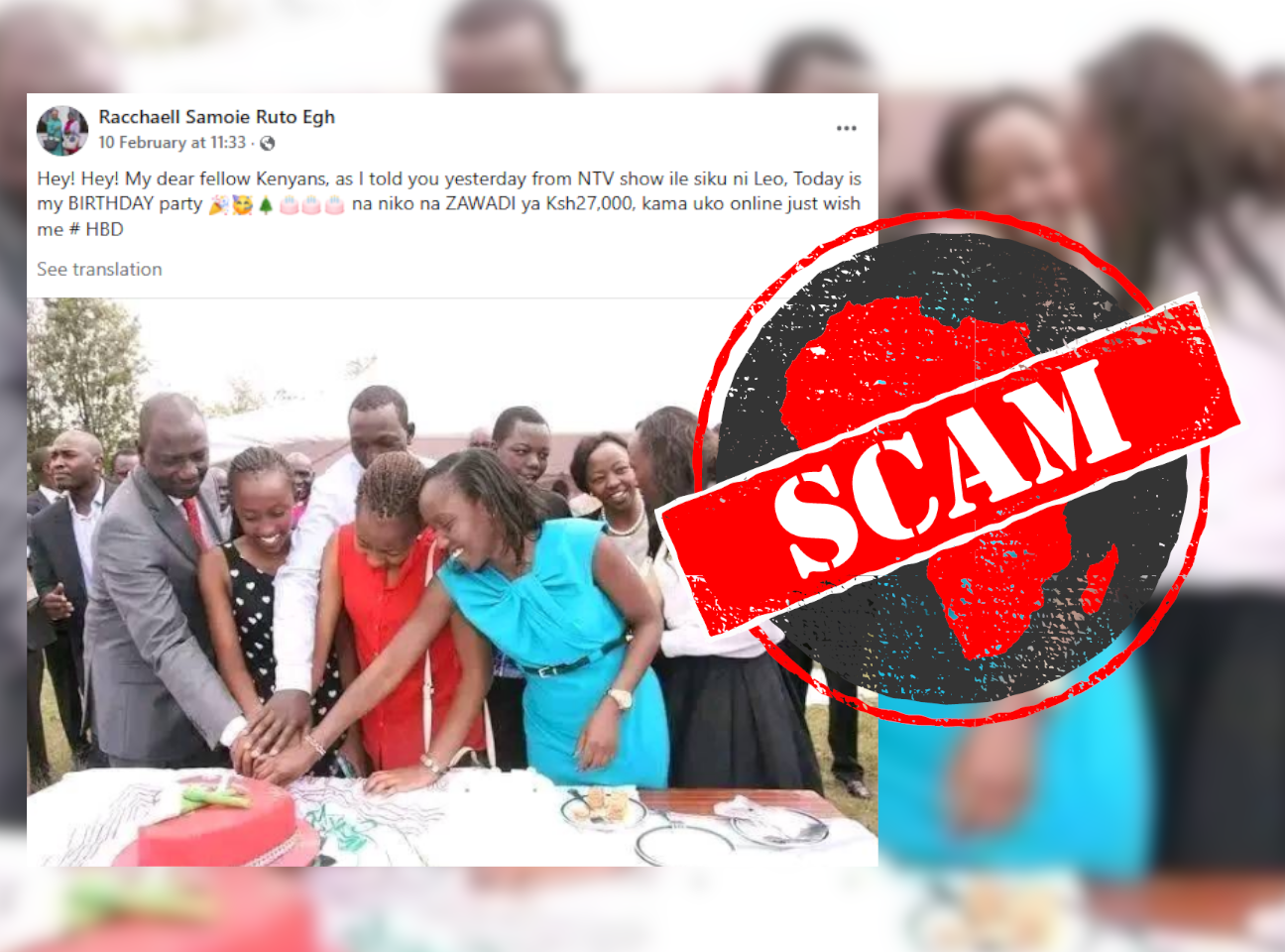IN SHORT: The page combines the (misspelled) names of Kenyan president William Ruto and his wife Rachel Ruto. And it offers a fantastic prize of KSh27,000 for doing very little – but you have to pay a bogus KSh199 “registration” fee first.
The Facebook page “Racchaell Samoie Ruto Egh” promises users a huge reward for simply replying to its posts with happy birthday messages.
The account combines the names – although wrongly spelled – of Kenyan president William Samoei Ruto and his wife Rachel Ruto.
It uses a photo of the first lady as its profile photo.
One of its posts, dated 17 February 2023, reads: “Hey! Hey! My dear fellow Kenyans, as I told you yesterday from NTV show ile siku ni Leo, Today is my BIRTHDAY party na niko na ZAWADI ya Ksh27,000, kama uko online just wish me #HBD.”
This mix of English and Kiswahili translates as: “Hey! Hey! My dear fellow Kenyans, as I told you yesterday during a show at NTV Kenya, today is my birthday party. I have a KSh27,000 prize. If you are online, just wish me a happy birthday.”
NTV Kenya is a local TV station.
The account regularly posts on Kenyan Facebook groups with thousands of members. It has posted the birthday competition message here, here, here, here, here, here, here and here.
But is the page and its promotions legit? We checked.

Signs of fake Facebook account
The page’s misspelling of the president and first lady’s names is the first red flag. Ruto’s second name is “Samoei”, not “Samoie”, and his wife’s first name is “Rachel”, not “Racchaell”.
The president’s official Facebook page is “William Samoei Ruto” and has more than 2 million followers. The first lady’s Facebook page, “Mama Rachel Ruto”, has over 900,000 followers. Both are verified, and neither offers competitions or promotions.
It is unlikely that the two would jointly run an unverified account specifically to offer promotions.
The account tells users who write the happy birthday messages to text the WhatsApp number 0741977295 – belonging to the “secretary” – to claim their reward, using the hashtag #PROMOTION.
But there is a catch. When Africa Check texted the number, we were asked to deposit KSh199 for registration before we could get the KSh27,000 reward.
This is a clear indication that this is a scam and the account is fake.
To help protect yourself against online fraudsters, read our guide to Facebook scams and how to spot them.
Republish our content for free
For publishers: what to do if your post is rated false
A fact-checker has rated your Facebook or Instagram post as “false”, “altered”, “partly false” or “missing context”. This could have serious consequences. What do you do?
Click on our guide for the steps you should follow.
Publishers guideAfrica Check teams up with Facebook
Africa Check is a partner in Meta's third-party fact-checking programme to help stop the spread of false information on social media.
The content we rate as “false” will be downgraded on Facebook and Instagram. This means fewer people will see it.
You can also help identify false information on Facebook. This guide explains how.





Add new comment